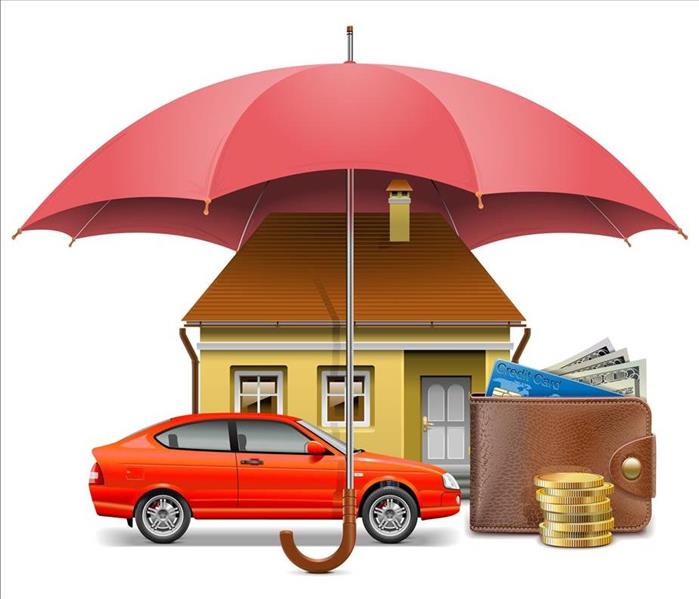Will Filing an Insurance Claim Raise My Rates?
11/16/2021 (Permalink)
Homeowners' insurance exists to provide financial protection for homeowners against catastrophic damage to their homes. However, many homeowners fear that filing an insurance claim may cause their rates to go up. This isn't always the case.
How an Insurance Claim Affects Your Rates
Insurance premiums are primarily based on risk. For homeowners insurance, insurance companies consider both the risks associated with the policyholder and the property being insured. Several factors can affect insurance rates:
- Value of your home
- Your credit history
- Age of your home
- Location of your home
- Materials your home is constructed from
- Your claims history
- Your marital status
Homes that are worth more money and cost more to replace usually cost more to insure. Insurance companies also consider location-based risk factors, such as weather conditions and proximity to water sources. Homes that are made out of materials that better withstand fires, wind and other perils may cost less to insure. Finally, the fewer claims you have filed and the less those claims cost your insurance company, the less you are likely to pay.
Why Claims History Matters
Past behavior often predicts future behavior. Policyholders who have filed claims in the past are more likely to file claims in the future. However, the type of claim, how long ago the claim was filed and the cause of the damage also has an impact on whether filing a new claim will increase your rates.
Claims That Are Likely To Increase Your Rates
Insurance companies consider some types of claims to be a greater indicator of a high risk of additional claims than others. Dog bites, water damage, personal injury claims, and mold claims fall into this category.
Claims That Are Less Likely To Cause a Rate Increase
Small homeowners' claims, such as minor water damage caused by a pipe burst, may not result in rate increases unless you make a lot of them. If the insurance company determines that you are filing a lot of small claims because you are not properly maintaining your home, they may increase your rates or refuse to renew your policy.
Typical Rate Increases
A typical claim may result in a rate increase of 20% to 40%. Your rates may remain higher for several years and then go back down if you do not file additional claims. Some insurance companies may not raise rates for a first claim or claims under a certain dollar amount.
When To File a Claim
If you have a home flood or other major disaster, you may have no other choice than to file a claim. It probably does not make financial sense to pay for large amounts of damage out of pocket when you have insurance. For smaller claims, such as the cost to hire a remediation company in Clearfield, UT, to clean up a minor mold problem, you should weigh the cost of paying for the damage out of pocket versus the potential increase in your insurance rates.
Purchasing insurance won't do you much good if you are afraid to ever file an insurance claim. However, making wise decisions about which claims to file can help keep premiums low.



 24/7 Emergency Service
24/7 Emergency Service
